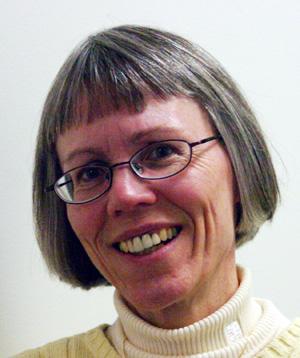
By Barb Arland-Fye
Deacon candidates, their spouses and other students in the Master of Pastoral Theology program now have one place to study, worship and share meals: the newly renovated St. Vincent’s Center in Davenport.
Before our February class (I’m one of the “other” students), we shuttled between St. Ambrose University and Assumption High School in Davenport. Utilizing diocesan headquarters demonstrates the value of the facility for wider use by the people of the diocese.
As part of our assignment for February’s class on Vatican II and Ecclesiology, we were asked to reflect on our hopes for the Catholic Church. In reflecting on my hopes, I recognized the growing connection with my career as editor of The Catholic Messenger.
In my work I feel like a ship’s captain navigating the seas of the Catholic Church for readers of our diocesan newspaper. Sometimes I need to turn the wheel a little to the left, sometimes a little the right, and sometimes I need to drop anchor to re-establish my bearings. But I’m on the journey for the long haul, and it’s a commitment that continues to shape me as I strive to become intimately familiar with the seas of my faith. From my vantage point I see priests and laity, guided by the power of Holy Spirit, striving to engage themselves and others in what it means to be Church through prayer, action and discernment. My hope focuses on the solid foundation of the Catholic Church and the continuing presence of the Holy Spirit in helping us respond proactively to our call to mission. More than 2,000 years ago Jesus Christ “called forth a community of disciples in order to share in and continue his mission to proclaim and realize the coming reign of God,” theologian Richard Gaillardetz observes in “Ecclesiology for a Global Church.” The mission endures.
Still, it’s hard to resist creating a to-do list for the Catholic Church. We live in an era and a culture that prides itself on accomplishment, on getting to the end of that to-do list and outdoing someone else in the process. We want to fix things that we assume are broken and we want it done yesterday. I’ve interviewed Catholics who’ve identified changes they’d make if they were in charge. They’re not seeking to change the Church’s foundation, but rather, the way it conducts itself. I’ve heard from some readers expressing thanks for publishing an article about a well-respected priest who criticized the Church hierarchy for its handling of the translation of the New Roman Missal, Third Edition. He was former chair of the music committee of the commission that oversaw the new edition’s translation. The people who spoke to me about this issue aren’t interested in the story because it involves dissention or because they are resistant to the change; they’re interested in the call for dialogue in the Catholic Church. “The Church is big enough for all,” one correspondent wrote to me.
In this week’s Catholic Messenger, editorialist Frank Wessling speaks about the need for dialogue concerning mandatory celibacy for Roman Catholic priests. The issue has resurfaced because more than 200 theologians in Europe signed a memorandum last month asking for open reflection on the question, but not necessarily for a change in Church discipline. Wessling points out that 41 years ago, then Father Joseph Ratzinger — our future Pope Benedict XVI — was among German theologians who raised that question. “They saw the necessity of an urgent examination of … the law of celibacy in the Latin Church,” Wessling wrote. It was a call to dialogue.
Gaillardetz addresses the need for dialogue in Ecclesiology for a Global Church, one of the books we’re reading for our class on Vatican II and Ecclesiology. Among his observations that resonate with me is this one: “The dialogue of life, sown from the seeds of mainly daily encounters, leads to a dialogue of action, a willingness to work together for justice based on common values.” Our willingness to listen to one another on the important issues of our Church would reap hope for its future.








